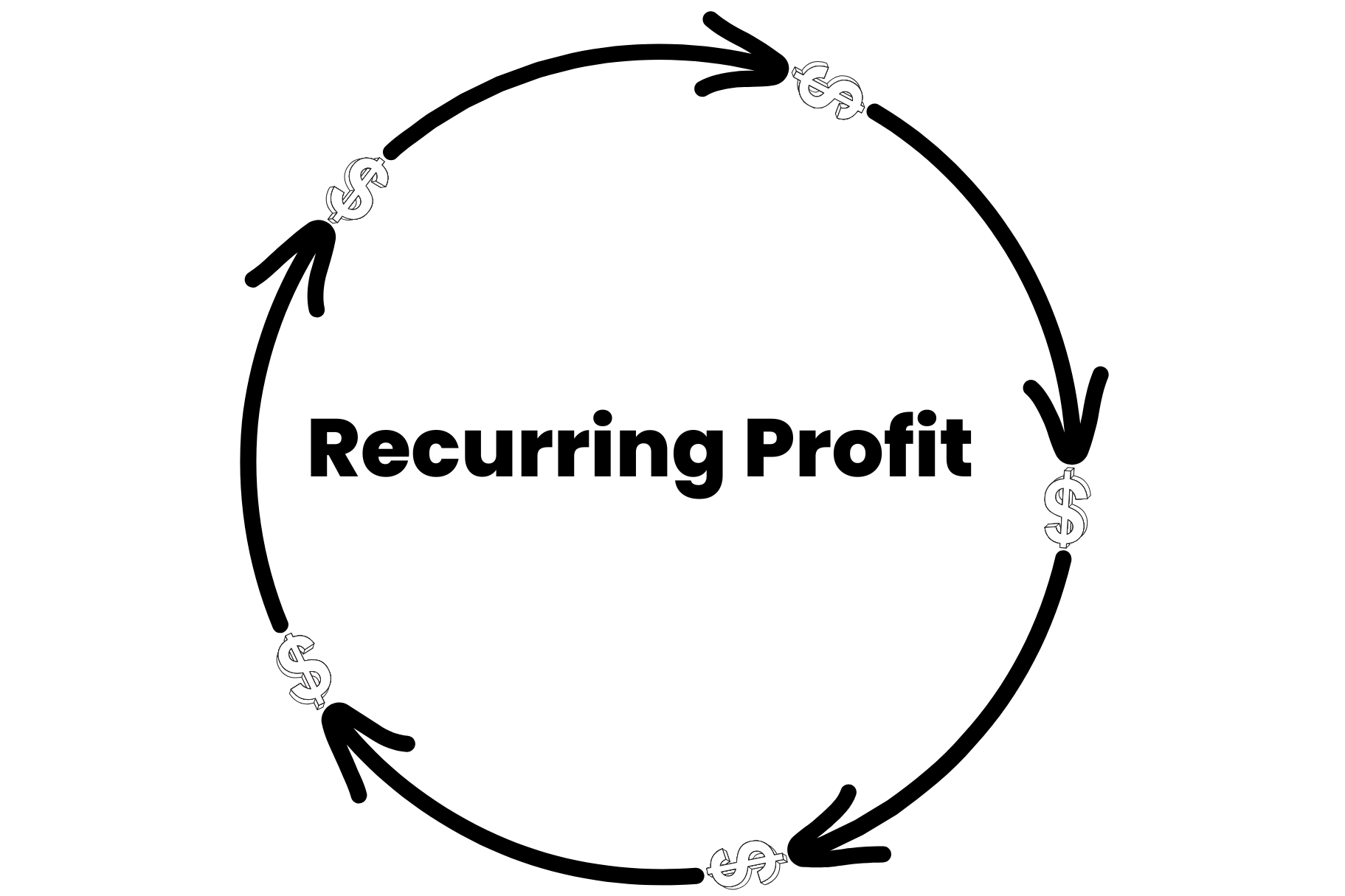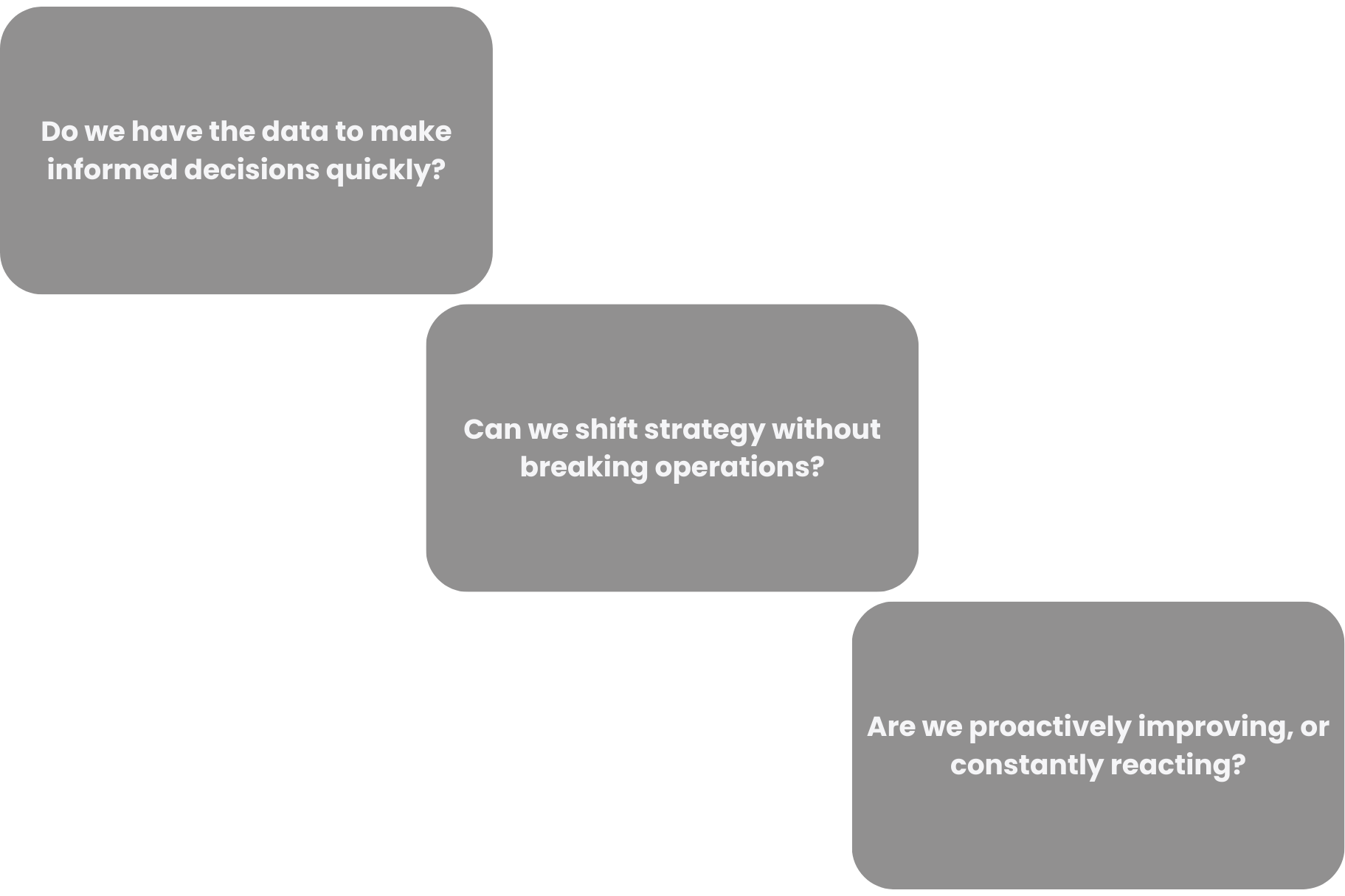How Do You Determine Whether a Business Is Successful?

In this post, we’ll break down what defines business success and how to measure it with more than just revenue or headcount. If you’re running a company generating between $3 million and $20 million annually, you’ve already beaten the odds. But surviving is not the same as succeeding. To lead your company with clarity, you need a sharper definition of success—one that aligns with financial performance, operational discipline, and long-term value creation.
Key Takeaways
-
Revenue is just one piece of the puzzle—profit, systems, and sustainability matter more
-
A successful business performs today and is built to last tomorrow
-
Success is measurable—if you’re tracking the right things
-
Culture, client outcomes, and leadership alignment are key intangible indicators
Why Revenue Alone Isn’t the Best Measure
It’s easy to look at revenue as the primary measure of success. And in some ways, it’s a helpful signal—strong revenue suggests demand, traction, and relevance in your market. But revenue alone doesn’t guarantee that your business is healthy. In fact, many companies scale quickly only to struggle with cash flow, team burnout, or unmanageable complexity.
True success shows up in how efficiently your company turns revenue into margin, impact, and resilience. A business doing $5 million with 20% profit and healthy culture may be far more successful than a $15 million company losing money each quarter. It’s not about how big you are—it’s about how strong you are.
Profitability: The Backbone of Sustainable Success
One of the clearest indicators of success is consistent profitability. A business that can generate real, recurring profit—not just in one good quarter but year after year—has proven it can create and retain value.

But we’re not just talking about net income on a spreadsheet. Profit must be enough to fund reinvestment, reward your team, protect against downturns, and give you breathing room as a leader. If you’re constantly under pressure to make payroll, delaying vendor payments, or relying on debt to grow, your success is fragile.
In successful businesses, profit is built into the model. It's not the byproduct of hustle—it’s the result of smart decisions and disciplined systems.
Cash Flow Stability
Profit is important, but cash flow is survival. A truly successful business doesn't just make money—it manages it well. That means having positive cash flow month after month, building reserves, and never scrambling to cover expenses at the last minute.
You can determine the health of a business by asking:
-
Does cash flow follow a predictable rhythm, or is it constantly fluctuating?
-
Can the business fund growth initiatives without taking on unnecessary risk?
-
Are receivables collected efficiently, and is the business able to pay vendors on time?
A successful business has command over its cash. That clarity and control are what allow you to scale on your own terms.
Operational Efficiency and Scalability
Success also means being able to deliver value consistently, at scale, without burning out your people or your systems. If every new client or deal adds stress to the team, or if growth leads to confusion instead of clarity, the model may be broken—even if the revenue looks strong.
Operationally successful businesses run with tight systems, defined roles, and clear expectations. Leaders know how long it takes to deliver, what it costs, and how to improve it. When performance issues arise, they’re solved with process—not panic.
This is what makes a business scalable. And scalability is one of the strongest signs that success can be sustained.
Client Results and Loyalty
Success isn’t just about what you keep—it’s also about what you deliver. A business that consistently helps its clients succeed, solve problems, and grow is a business that builds trust and stays in demand.
Look at your client retention, referral rates, and testimonials. Are customers staying with you year over year? Are they upgrading or expanding services? Do they send others your way? These are signs that you’re not just fulfilling a need—you’re creating value.
Financially successful businesses are often built on the foundation of loyal, high-value clients who stay because the experience matches the outcome.
Culture and Team Alignment
A business might be profitable and growing, but if turnover is high, morale is low, or leaders are constantly putting out fires, success becomes short-lived. True success includes a healthy internal culture—one where the team is engaged, understands the company’s mission, and is aligned on what matters most.
Successful businesses are led by people who don’t just chase results—but build a workplace that’s focused, energized, and committed to long-term performance. Your team should be proud of where they work and clear on where the company is going. If that’s missing, it will eventually show up in your numbers.
Strategic Flexibility
Lastly, successful companies don’t stand still. They adapt to market shifts, refine their offers, and regularly update their systems and goals. What worked last year may not work next year. If your business has the foresight and structure to evolve without unraveling, that’s a strong signal that it’s built for the long haul.
Ask yourself:

Strategic agility is what separates businesses that last from those that fade after their first big win. Enduring success requires the ability to adapt quickly to changing market conditions, customer needs, and competitive pressures. Companies that remain rigid in their strategies often find themselves outpaced by more nimble competitors who can pivot, innovate, and reallocate resources in real time.
Final Word: Define and Measure What Matters
Business success isn’t a feeling—it’s a set of outcomes, supported by data and shaped by intention. It shows up in your margins, your systems, your people, and your ability to adapt. If you’re profitable, cash flow positive, operationally sound, and creating lasting value for clients and employees alike—you’re not just surviving. You’re succeeding.
At Coltivar, we help founders build businesses that are profitable, sustainable, and built to last—not just look good on paper.
Want to assess how successful your business really is—and what you can do to strengthen it?
Book a Strategy Review and let’s build your success scorecard together.


